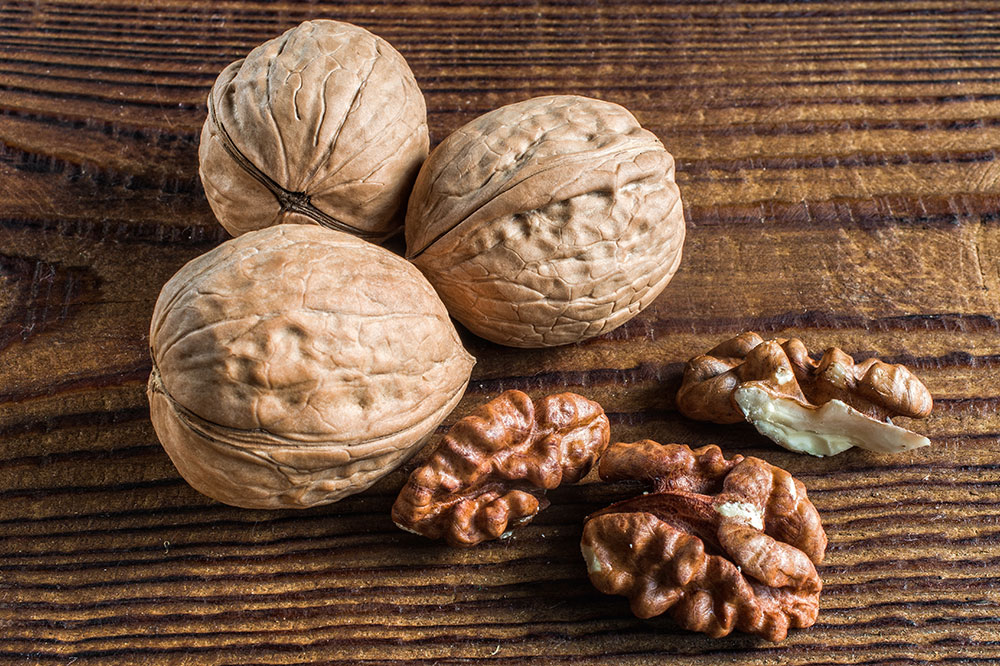Comprehensive Nutritional Strategies to Aid Depression Recovery
Discover effective nutritional strategies for managing depression through a detailed exploration of mood-boosting foods. Incorporating nuts, berries, omega-3 rich fish, and other nutrient-dense options can support mental health, complement therapy, and enhance overall well-being. Learn how specific nutrients influence brain chemistry and how to integrate these foods into your daily diet for better mental resilience.

Healthy Foods That Promote Mental Well-being and Alleviate Depression Symptoms
Depression is a complex mental health disorder that affects millions of individuals worldwide. It manifests through persistent feelings of sadness, hopelessness, and a lack of interest or pleasure in daily activities. While traditional treatments such as therapy and medication are essential, emerging research highlights the significant role that nutrition plays in managing and alleviating depression symptoms. An optimal diet rich in specific nutrients can support brain health, improve mood stability, and promote overall mental wellness.
In this comprehensive guide, we explore a variety of nutritious foods known to aid in depression recovery. Incorporating these into your daily diet can serve as a proactive approach to mental health management, complementing medical treatments and therapies.
Key Nutritional Foods to Support Mental Health
1. Walnuts – Nature’s Brain Boosters
Walnuts are an exceptional source of antioxidants, polyphenols, and essential nutrients that combat oxidative stress and inflammation—two key factors linked to depression. Rich in omega-3 fatty acids, they play a crucial role in maintaining healthy brain function and reducing depressive symptoms. The presence of melatonin and other bioactive compounds in walnuts also enhances sleep quality, which is often disrupted in depression. Consuming a handful of walnuts regularly can contribute to mood stabilization and overall mental resilience.
2. Dark Chocolate – A Delicious Mood Enhancer
Dark chocolate contains phenylethylamine, a compound associated with elevating mood and promoting feelings of happiness. Its high concentration of antioxidants, flavonoids, and magnesium helps decrease inflammation and oxidative stress, both linked to depression and anxiety. Consuming moderate amounts of dark chocolate can provide a quick boost of energy and positivity, making it a tasty addition to a depression-fighting diet.
3. Avocados – Healing Fats for Brain Health
This nutrient-dense fruit is packed with monounsaturated fats, vitamins such as B-vitamins, vitamin E, and minerals that support brain function. Importantly, avocados contain tryptophan, an amino acid that the body converts into serotonin—a neurotransmitter central to mood regulation. Regular consumption of avocados can help stabilize mood swings and reduce symptoms of depression by supporting optimal brain chemistry.
4. Berries – Powerful Antioxidants for Mental Clarity
Blueberries, cranberries, goji berries, and other colorful berries are rich in antioxidants, including anthocyanins and vitamin C. These compounds help combat oxidative stress and inflammation, which have been linked to depression and cognitive decline. Incorporating berries into your diet can enhance cognitive function, improve memory, and promote emotional stability, making them essential for mental health resilience.
5. Mushrooms – Natural Antioxidants for Mental Health
Recent studies suggest that medicinal mushrooms—such as reishi, lion’s mane, and shiitake—contain ergothioneine, a potent antioxidant that can reduce depression risk. These fungi may also have neuroprotective effects, potentially benefiting mental health conditions like schizophrenia and anxiety disorders. Adding a variety of mushrooms to soups, stir-fries, or salads can provide mental health benefits alongside their culinary versatility.
6. Brazil Nuts – Selenium-Rich Nuts for Mood Support
Selenium is a vital trace mineral with powerful anti-inflammatory properties. Brazil nuts are among the richest dietary sources of selenium, helping to reduce oxidative stress and support cellular health. Adequate selenium intake has been associated with decreased symptoms of depression and anxiety, making Brazil nuts an effective natural mood stabilizer when eaten in moderation.
7. Omega-3 Fatty Acids – Essential Nutrients for Brain Function
Extensive research links omega-3 fatty acids with improved mental health outcomes. Found abundantly in fatty fish such as salmon, sardines, mackerel, and anchovies, omega-3s are essential for maintaining cell membrane integrity and facilitating neurotransmission. Plant-based sources like flaxseeds, chia seeds, walnuts, and leafy greens also provide omega-3s, making them valuable additions for those seeking depression relief through diet.
8. Bananas – Natural Source of Mood-Boosting Nutrients
Bananas are not just a convenient snack; they are rich in vitamin B6, which is essential for serotonin synthesis and regulation. While bananas don’t directly increase serotonin levels, their vitamin profile supports the production and release of this critical neurotransmitter. Regular consumption of bananas can help in stabilizing mood and reducing irritability associated with depression.
Additional Strategies for Managing Depression
While nutrition is pivotal, it should be complemented with other treatments such as therapy, medication, and lifestyle changes. For instance, medications like LATUDA® are prescribed for bipolar depression and often used alongside mood stabilizers like lithium or valproate. LATUDA® can enhance mood, increase energy levels, and improve cognitive clarity, thereby contributing to overall mental well-being.
Adopting a holistic approach that includes a balanced diet, regular physical activity, adequate sleep, and professional mental health support can significantly improve depression outcomes. Consulting with healthcare providers about dietary choices and treatment options ensures a personalized and effective management plan.
Incorporating these nutritious foods into your daily regimen, along with appropriate medical treatment, offers a promising path toward emotional resilience and improved quality of life. Remember, consistent efforts and a supportive network are key to overcoming depression and fostering mental health stability.





